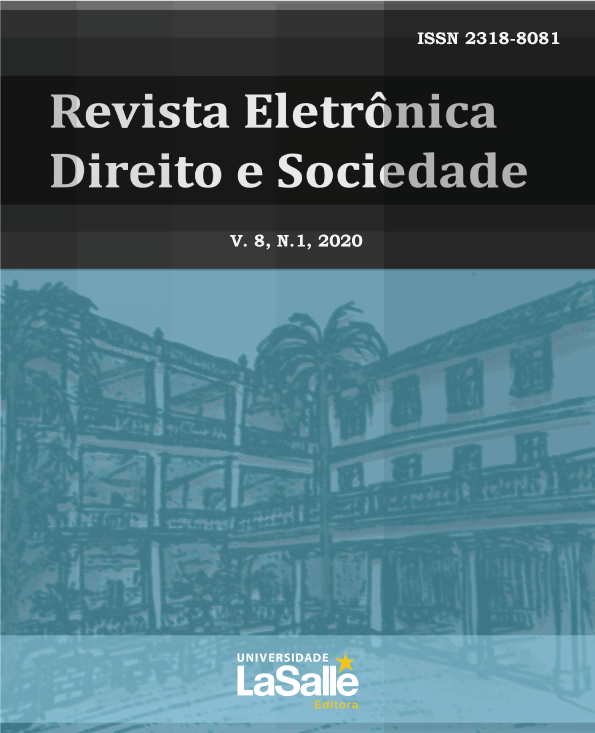Efetividade da Lei nº 12.732/2012 na assistência às neoplasias malignas e sua associação com a mortalidade no Estado do Amazonas
DOI:
https://doi.org/10.18316/redes.v8i1.5895Palavras-chave:
Direito Fundamental, Lei dos Sessenta Dias, Neoplasias Malignas.Resumo
Nesse artigo, apresentam-se resultados de uma pesquisa desenvolvida com o objetivo de analisar a efetividade da Lei 12. 732/2012, Lei dos 60 dias, na assistência às neoplasias malignas e sua associação com a mortalidade no Estado do Amazonas. Para tanto, elegeram-se como objetivos específicos: estimar o tempo médio de espera para o diagnóstico e tratamento por grupo de neoplasia; apresentar fatores sociodemográficos, epidemiológicos e clínicos segundo tempo de espera oportuno/inoportuno entre o diagnóstico e tratamento por grupos de neoplasias malignas; e constituir um cenário jurídico relacionado à efetividade da Lei de acordo com fatores sociodemográficos, epidemiológicos e clínicos. Adotou-se uma metodologia mista para a realização do estudo descritivo em corte seccional (2015-2016) de neoplasias malignas registradas em residentes no Amazonas. Os resultados indicam a não efetividade da Lei dos sessenta dias para os pacientes acometidos por neoplasias malignas no Estado do Amazonas, o que compromete a eficácia do tratamento e influencia os gastos públicos com auxílio doença.
Downloads
Publicado
Edição
Seção
Licença
Autores que submetem seus manuscritos para serem publicados na Revista REDES concordam com os seguintes termos:
Os autores declaram ter ciência de que mantém os direitos autorais concedendo à REDES o direito à publicação.
Os autores declaram ter ciência de que o trabalho submetido será licenciado sob a Licença Creative Commons atribuição não-comercial que permite o compartilhamento do artigo com reconhecimento da autoria e publicação nesta revista.
Os autores declaram ter ciência que em virtude de os artigos publicados nesta revista tem acesso público e gratuito.
Os autores declaram, sob as penas da lei, que o texto é inédito e original e que têm ciência de que identificada a existência de plágio, os autores plagiados serão informados – para querendo, tomarem as medidas legais nas esferas cível e criminal – e, os autores do plágio terão seu acesso à revista bloqueado.
Os autores declaram que – em caso de coautoria – todos contribuíram significativamente para a pesquisa.
Os autores obrigam-se a fornecer retratações e (ou) correções de erros em caso de eventual detecção.
Os autores obrigam-se a não publicar o texto submetido a REDES em outra Revista eletrônica (ou não).

A Revista Eletrônica Direito e Sociedade - REDES - está licenciado com uma Licença Creative Commons Atribuição-NãoComercial 4.0 Internacional.
Baseado no trabalho disponível em http://revistas.unilasalle.edu.br/index.php/redes/about/submissions#copyrightNotice.
Podem estar disponíveis autorizações adicionais às concedidas no âmbito desta licença em http://creativecommons.org/.

